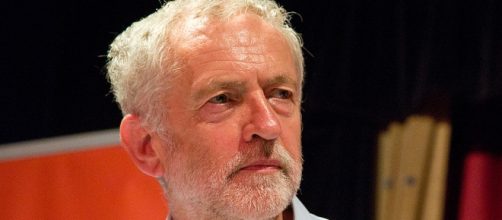BRITAIN’S OPPOSITION Labour Party is coming to terms with the election of left-winger Jeremy Corbyn as its new leader. And many on the centre of the party are waiting anxiously as he makes his first decisions as leader.
Many of those Labour MPs, candidates and members Blasting News spoke to were cautiously optimistic about the prospects for the future. But their views were put in question as more than 12 former front bench figures declared that they would not serve under a Corbyn leadership.
Lucy Powell, a supporter of runner-up Andy Burnham, accepted a role as Shadow Education Secretary.
She said: “I totally respect those who have left the front bench.” She said that ‘being true to yourself’ is what matters.
David Anderson MP was upbeat about the emphatic victory by the Islington MP on Saturday. “This is a new start. A chance to break from the monetarist agenda that has so damaged working people in our nation.
“The party has spoken and we must all respond,” he told us.
While most of those former front benchers who refused to join Corbyn after his victory are Blairites, some on the modernizing wing of the party were most accommodation.
One, who was part of the last Labour administration but is now seeking a seat as a Labour MP, told us: “The election of Jeremy was overwhelming and members like me, who did not vote for him, now need to support Jeremy Corbyn and the new team in trying to build a centre-left opposition to this Government.” Asking to remain anonymous he told us: “The fact that Corbyn's leadership will be more left than centre will be an interesting challenge for the wider public who seem to be centrist in their instincts, especially at general elections.
“But there has certainly been a political earthquake in Labour and a new vision has caught people's imagination - we now need to see if this enthusiasm can be translated into a Government in waiting.”
Another MP, Richard Burden, said that he was a supporter of Yvette Cooper, who came third in Saturday’s election. On his website he conceded: “The scale of Jeremy Corbyn’s victory was, however, overwhelming and it must be respected. I don’t say that grudgingly.”
He pointed out that ‘hundreds of thousands’ of people had signed up to Labour, both during the election process and since Corbyn’s victory. He said this demonstrated an energy that captivated people who had previously been turned off policy.
For most Blairites, however, the almost 60 per cent vote for Corbyn presents a most serious challenge and it is one that has been seized on by the ruling Conservative party and by the right-wing press in the UK.
Prime Minister David Cameron has warned that the election of Corbyn represents a threat to the UK and its security, primarily because of his past opposition to the renewal of the Trident nuclear system.
However, the appointment of his close ally John McDonnell as Shadow Chancellor has also raised concerns in the City of London, as McDonnell previously has advocated the nationalization of the banking system.
However, as Richard Burden observed, the chief lesson for Labour now is to ‘change the style and character’ of politics.
Even Corbyn’s opponents have been surprised by the way he has generated a sense of engagement with the electorate, and in particular with younger voters.

